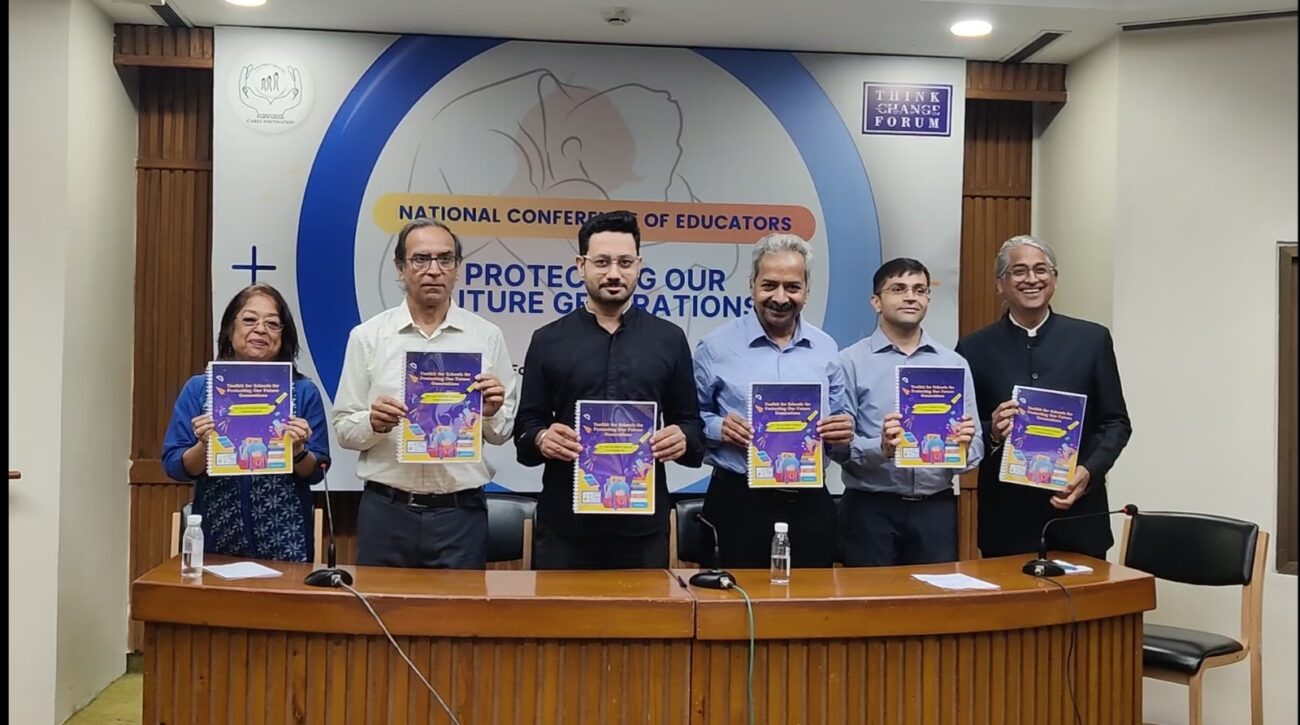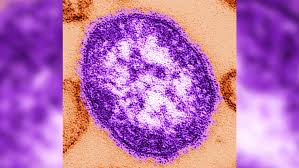Expose the manipulation of e-cigarette marketeers and empower children to resist these influences: Experts at the National Conference of Educators – Protecting Our Future Generations
Enforcement alone not enough – Closing gap in communication & making policies more stringent Conference provides 10 suggestions for educators and parents to prevent the use of gateway devices among children Comprehensive toolkit launched

- Enforcement alone not enough – Closing gap in communication & making policies more stringent
- Conference provides 10 suggestions for educators and parents to prevent the use of gateway devices among children
- Comprehensive toolkit launched for Indian schools to address the increasing experimentation by students with new age gateway products and devices
On the occasion of Teacher’s Day, Think Change Forum (TCF), an independent think tank dedicated to generating new ideas and Parwarish Cares Foundation organized the National Conference of Educators – Protecting Our Future Generations: Equipping Educators to Address the Issue of usage of new age gateway products among School Going Children in New Delhi. These new age gateway products include all forms of Electronic Nicotine Delivery Systems (ENDS), Heat Not Burned (HNB) Products, e-Hookah etc. The conference featured a panel discussion and a capacity-building session, resulting in the formulation of 10 valuable suggestions for educators. The panel discussion was titled – How Vulnerable are our Adolescents to such product use, and What Should We Do?
The conclusions that came out from the conference underscore the relentless efforts of major international tobacco companies to reinvent themselves to remain relevant for younger generations. Much like technology has permeated various industries, big tobacco firms have also harnessed technological advancements to adapt and regain relevance. Electronic cigarettes or vaping instruments manufactured by these companies have undergone consistent technological upgrades, resulting in devices that are more functional, sophisticated and visually appealing to children and young adults. To safeguard our children, it’s crucial to prevent this technological reinvention and curb the manipulation of our youth through aggressive marketing tactics.
Setting the context for the conference Prof. Amitabh Mattoo, Advisor, Think Change Forum said, “Vaping is becoming an epidemic among youth, with post-COVID shifts in attitudes and behavior contributing to substance abuse. Such behaviour has been exacerbated by aggressive marketing by international tobacco companies, now focusing on vaping and electronic cigarettes and aiming to revive their businesses by targeting younger generations. A significant concern is the widespread lack of awareness among parents, teachers and children about vaping. Given the gravity of this issue, out-of-the- box solutions are essential, as government efforts alone may not be adequate.”
10 suggestions for educators and parents to prevent the use of gateway devices among children
The first suggestion is to educate children about how marketing manipulates them into experimenting with electronic gateway devices. Ms. Abha Adams, Renowned Educationist said, “Children dislike being lectured to. We need to make them understand how they are being manipulated by the media & marketing which influences them to buy stuff. Analysing media manipulation through projects will ensure that todays generation will push back. With regard to substance abuse, schools need to create safe spaces where students & parents can talk about issues openly.”
The second suggestion is to enhance demand reduction through active and appropriate communication with educators, parents and children. Mr. Shaleen Mitra, Secretary to Chairman Cum Minister of Urban Development & Health, Government of NCT of Delhi said, “Addressing the issue goes beyond supply reduction efforts like enforcement and raids; educating children about the disastrous consequences from use of such devices is equally crucial. Communication should be improved through various mediums and stakeholders. For instance, creating poems, ghazals on the issue – making these conversations and having actors, principals, and students speak out – can help convey a more compelling narrative than what is currently being done.” Strategies can further involve creating and disseminating more relevant content that captures the attention of children, taking the form of engaging cartoons or other age-appropriate materials that convey the message of how experimenting with gateway devices is extremely dangerous.
The third suggestion emphasizes inclusive awareness building with multiple dimensions, such as highlighting children who do not vape as heroes or involving affected students or alumni in communication efforts. Abha Adams said, “Alumni who have been through rehab can speak to school children about the dangers of such behaviour, as hearing from their peers can make the message more impactful.”
The fourth suggestion is to raise the awareness about these new-generation electronic vaping devices in medical schools so that young doctors can be equipped with accurate information for their interactions with patients. Dr. Vikas Mittal, Associate Director of Pulmonology at Max Super Speciality Hospital, Shalimar Bagh, said, “The medical community needs to talk more about the ill effects of electronic device-based substance addiction. Doctors need to highlight that vaping can cause serious diseases.”
The fifth suggestion, which emerged during the capacity-building session, is to incorporate behavioural indicators into student report cards in schools. This proposal implies a broader perspective on assessing students’ overall development and well-being, not just their academic performance. By including behavioural indicators and incidences of early adopting and experimentation with electronic cigarettes in the report card of a student, along with aspects such as punctuality, teamwork, communication skills, respect for others, the schools will be able to bring faster awareness on the issue.
The sixth suggestion advocates the inclusion of life skills education in schools, similar to the Delhi government’s “Happiness Class” initiative. These classes teach students to express their emotions and develop crucial life skills such as emotional intelligence, critical thinking, teamwork and relationship skills. This approach is most effective when teachers or facilitators can boost students’ self-worth, leading to a decreased likelihood of behavioural issues like vaping.
The seventh suggestion revolves around harnessing the power of social media influencers and utilizing platforms like podcasts to deter children from experimenting with new age gateway products. By collaborating with influencers who resonate with the younger generation, educational messages about the dangers of new age gateway product use behaviours, such as vaping, can be effectively conveyed. Podcasts can feature experts, survivors, or individuals sharing their personal experiences to provide valuable insights and information.
The eighth suggestion emphasizes the importance of educating children about safe risk-taking – parents can play a significant role in helping their children make safer choices and develop resilience in the face of risks. It involves teaching children how to identify risks and handle challenging situations. One key aspect is equipping children with refusal skills, enabling them to make informed decisions and avoid engaging in risky behaviours.
The ninth suggestion from the conference focuses on guiding young children on how to manage curiosity and resist experimentation with new age gateway products. It emphasizes that parents and educators serve as role models, and the values and skills they impart, greatly influences the future development of children. Sushant Kalra, Director Parwarish Institute of Parenting said, “Parents and Educators are role models and what we are feeding our children is what they have become. We have failed this generation because we as a society have given them this exposure without giving them the right skills to manage the addictive experimentations that children are indulging in today.”
The tenth and final suggestion advocates deconstructing authority in the relationship between educators, parents, and children. It encourages educators and parents to openly discuss their vulnerabilities and personal experiences, making them more relatable to children. By sharing their own challenges and vulnerabilities, adults can establish a deeper connection with children, fostering a more receptive environment for discussions about tackling behaviours like vaping.
Toolkit for Indian Schools
The Tool Kit for Indian Schools was dedicated to Educators for a lasting change and was launched by Mr. Shaleen Mitra, Ms. Abha Adams, Mr. Suneel Vatsayan, Chairperson, NADA India Foundation of Delhi, Dr. Vikas Mittal and Dr. R.K Suri, Clinical Psychologist. The esteemed panellists lauded the development for this toolkit that has been tailored specifically for the Indian school context. They stressed that the toolkit is highly significant, especially in light of the growing popularity of new age gateway product devices among Indian school students. The toolkit’s primary aim is to empower schools and teachers by providing them with valuable information, practical templates and resources. These resources will enable educators to educate themselves and take proactive measures to address attitudinal and behavioural shifts in school children linked to the experimentation with the new age gateway products and devices like electronic cigarettes and Electronic Nicotine Delivery Systems (ENDS).
The toolkit comprises of three sections: an introduction, teacher counselling and parental counselling. The introduction addresses concerns about children’s mental health, early adoption of gateway devices, health impact, early experimentation signs, school roles, counselling principles and sample policies. The teacher counselling section equips educators with principles and resources to prevent early adoption in schools. The parental counselling section guides parents in discussions, recognizing parenting styles, and instilling good health values. The toolkit aims to combat children’s lack of awareness about vaping, emphasizing the need for innovative solutions alongside government efforts.






